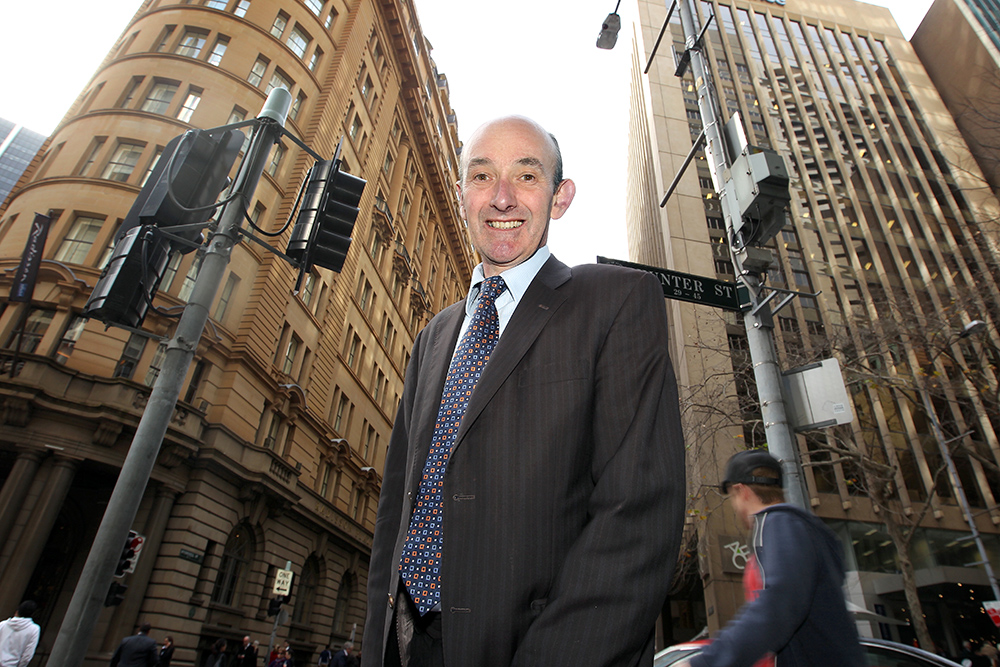Last week we launched our Digital Productivity and Services Flagship, a $40 million research initiative focusing on the services sector and optimising the full value of national broadband infrastructure. We blogged about Tech Trends and Why we need to invest in the digital economy.
In this next post in our Tech-Know series Alan Dormer responds to questions about his research theme Government and Commercial Services in an interview with Arwen Cross.
What future trends do you see for the services sector?
-
Co-ordinated access to data
Wouldn’t it make life simpler if all the data you needed to do your job was easy-to-find and instantly accessible? At present it costs time and money to find information, whether you’re in the corporate world or government service. In the future, organisations will become more coordinated about how they store and share data. And we’ll all be more productive in our jobs as a result.
-
A revolution in data quality
It’s very easy to collect and store data, but it’s not until you try to use it that you discover the problems with it. There’s often an extra detail that wasn’t collected that would have been useful, or a problem with accuracy that only shows up on closer inspection. We need a revolution in data quality, where organisations think more carefully about what information is worth storing, and how to ensure it’s suitable for use when it’s needed.
-
An opening-up of private information
When people discover they can get faster, better service by supplying their personal information, they’ll become a lot less precious about privacy. If you can see a benefit in handing over your consumer profile, you’re more likely to do it. People might also respond to discounts or bonuses provided for handing over information to service providers.
-
Knowledge workers change their work practices
Why has telework been waiting around since the 80s? Because it’s not revolutionary enough. You can’t do your office job at home because your home simply isn’t your office. But imagine a world where professional knowledge workers were like journeymen or consultants. They could apply to work on individual projects through a tender system online – in fact this is already happening in some sectors. This system works well for knowledge workers because for them there is no economy of scale like there is on a production line.
Why do we need research in services, and how does your group contribute?
Mr Alan Dormer, Research Theme Leader: Government and Commercial Services
Australia needs to export services
Presently the services sector accounts for 70 per cent of Australia’s GDP and about 80 per cent of value add and employment. So services are already important to our economy, and it’s a sector where we have the opportunity to create a sustainable increase in exports and employment.
For our services to be internationally competitive we have to make them more desirable or more efficient to deliver than services offered by others. We have to ask the question, “Why here?” This will help us identify sectors for growth, such as tourism, health or superannuation.
The role for research in commercial services is in providing data analysis for better decision making and increased productivity. Our group works primarily in the areas of finance and supply chain logistics. Our financial mathematicians investigate how superannuation interacts with the economy and how best to provide retirement security for investors. Our operations researchers work in logistics including air traffic management, using mathematics to make air transport safer and use air space to capacity.
Government needs to deliver high quality services on a limited budget
Government services need to find innovative ways to increase productivity while operating within a limited budget . For example, it is common to consider the time taken for service centre staff to respond to a request. But the looking across channels such as office visits, websites and phone calls, and tailoring staff rosters to predicted loads across these channels, requires more complex analysis which our researchers can provide.
Government services often need to be able to measure the outcome of their services, rather than a direct output. For example we’re working with the Department of Human Services in human services delivery research. We’re looking at which pathways through different social services help people achieve the best outcomes and how to predict changes in the demand for social workers so staff can be allocated better.
In disaster management we’re working on software and analysis to help emergency managers across the spectrum of planning, preparation, rescue and recovery. This work ranges from flood modelling to analysing social media for relevant information about an emergency situation.
Further information
You can read more about our research in Government and Commercial Services on the Digital Productivity and Services page.
Tell us, how do you think your life as a service consumer or a service provider will change in an increasingly digital world?


